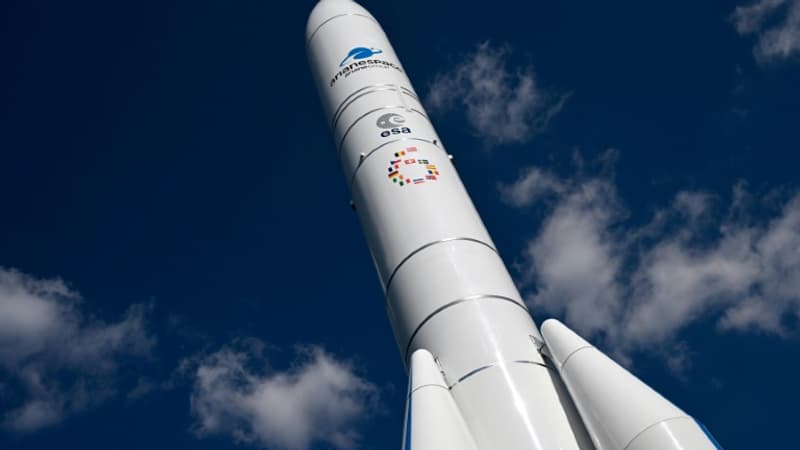The maiden flight of the Ariane 6 rocket, which was scheduled for late 2023, has been officially postponed to 2024, with several ground tests still to be carried out, the European Space Agency (ESA) has announced. This discrepancy, which European space officials have hinted at by evoking “possible dangers” in recent months, prolongs the launcher crisis Europe is plunged into with the end of the Ariane 5 and the problems of the small Italian Vega-VS rocket. The organizations and companies responsible for the program, ESA, Arianegroup, Arianespace and the French space agency CNES “confirm that the maiden launch is now scheduled for 2024,” ESA Director General Joseph Aschbacher said on Twitter Tuesday.
A short firing of the rocket’s main stage Vulcain 2.1 engine, originally scheduled for July 18, has been rescheduled for August 29. Another ignition of this engine, still on the ground, for 500 seconds corresponding to its duration of use in flight is scheduled for September 26, detailed Joseph Aschbacher. At the same time, a third firing test of the Vinci restartable engine of the upper stage of the rocket, the main innovation of the future launcher, is scheduled for September 1 in Lampoldshausen (Germany).
Details about the release window this fall
ESA, the prime contractor for European launchers, will be able to specify the launch window for 2024 after the September 26 test, according to its director general. The program for this new launcher, intended to succeed the Ariane 5, which made its last flight in July, and to fulfill the missions previously carried out by the Russian Soyuz rocket, began in 2014. Initially scheduled for 2020, the first flight of the Ariane 6, designed to face competition from the American Space X, had already had to be postponed due to the Covid-19 pandemic and certain development difficulties.
This new postponement deprives Europe of independent access to space. If the launch of the Italian Vega rocket is scheduled for September, then it should give way to the new Vega-C version. However, Vega-C has been grounded since the failure of its first commercial launch in December. And a new anomaly was detected at the end of June during a static ignition test of its engine, casting doubt on its expected return to flight by the end of the year.
Source: BFM TV


